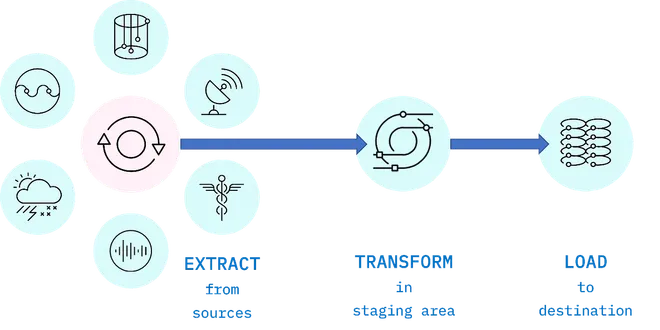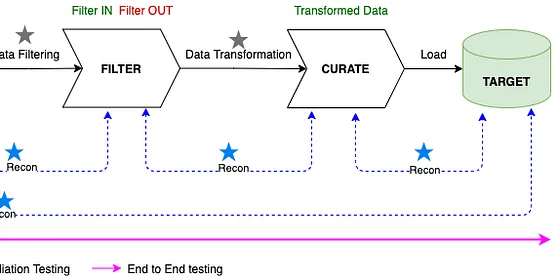ETL

What is ETL?
ETL (Extract-Load-Transform) is the most widespread approach to data integration, the practice of consolidating data from disparate source systems with the aim of improving access to data. The story…
📚 Read more at Towards Data Science🔎 Find similar documents

What’s ETL?
ETL stands for Extract - Transform - Load, it involves moving data from one or more sources, making some changes, then loading it into single destination.
📚 Read more at Towards Data Science🔎 Find similar documents

ETL Using Luigi
In computing, extract, transform, load ( ETL) is the general procedure of copying data from one or more sources into a destination system which represents the data differently from the source (s) or…
📚 Read more at Analytics Vidhya🔎 Find similar documents

What is ETL (Extract, Transform, Load)?
Let’s understand the importance of ETL. Figure 1: Image by Hands off my tags! Michael Gaida from Pixabay Introduction ETL became popular in the 1970s as companies started storing business data in nume...
📚 Read more at Python in Plain English🔎 Find similar documents

A new contender for ETL in AWS?
ETL — or Extract, Transform, Load — is a common pattern for processing incoming data. It allows efficient use of resources by bunching the “transform” into a single bulk operation, often making it…
📚 Read more at Towards Data Science🔎 Find similar documents

Data ETL Techniques
ETL, which stands for Extract, Transform, and Load, is the process of collecting data from various sources, standardizing it into a unified format, and then depositing this transformed data into a new...
📚 Read more at Level Up Coding🔎 Find similar documents

A guide to ETL Testing
Even though the above diagram is a bit of simplification, this is how most ETL workflows may look like. To put simply, ETL is an automated process to move data from source systems to target systems…
📚 Read more at Analytics Vidhya🔎 Find similar documents

Building a ETL pipeline
An ETL (Data Extraction, Transformation, Loading) pipeline is a set of processes used to Extract, Transform, and Load data from a source to a target. The source of the data can be from one or many…
📚 Read more at Analytics Vidhya🔎 Find similar documents

Python ETL Tools: Best 8 Options
ETL is the process of fetching data from one or many systems and loading it into a target data warehouse after doing some intermediate transformations. The market has various ETL tools that can carry…...
📚 Read more at Towards Data Science🔎 Find similar documents

Transitioning from ETL to ELT
ETL (Extract-Transform-Load) and ELT (Extract-Load-Transform) are two terms commonly used in the realm of Data Engineering and more specifically in the context of data ingestion and transformation. Wh...
📚 Read more at Towards Data Science🔎 Find similar documents

Best Practices — Creating An ETL Part 1
An ETL (and it’s not so far off cousin ELT) is a concept that is not usually taught in college, at least not in undergrad courses. Yet, ELTs play an important piece of almost every company’s day to…
📚 Read more at Towards Data Science🔎 Find similar documents

Talking To My Nana About ETL/ELT
Either ETL (Extract, Transform, Load) or ELT (Extract, Load, Transform) are processing step to get data clean and rigorous from sources — it can be a structured SQL or unstructured NoSQL — before…
📚 Read more at Analytics Vidhya🔎 Find similar documents


